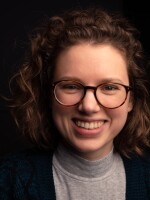On May 1, 1970, tens of thousands of protesters gathered on the New Haven Green and the campus of Yale University. They came in support of Black Panther Party leaders Bobby Seale and Ericka Huggins, who were on trial in New Haven for the murder of a fellow Black Panther, even though several other Panthers had already pleaded guilty to the murder.
Many New Haven residents feared violence would break out during the May Day protests. Some demonstrators threatened to tear down Yale, and hundreds of state troopers and members of the Connecticut National Guard were deployed to the city. And yet on that day, New Haven remained relatively peaceful, largely due to a behind-the-scenes alliance among the New Haven Police Department, Yale administrators and students, and certain protest leaders.
On Yale’s campus, black student leaders played a critical role in making sure that peace held. Ralph Dawson was one of those student leaders. He was a member of the class of 1971 and was, at the time, the moderator of the Black Student Alliance at Yale (BSAY). Connecticut Public Radio spoke to Dawson about his recollections of that time:
Why black students felt so invested in the outcome of the Black Panther trials:
“We had taken an interest in this trial, and we wanted Yale to take an interest in the trial and come down on the side, in effect, of the Panthers. We wanted Yale to weigh in on the importance of a fair trial for the Panthers. We saw Yale as a very important powerful institution, and we thought it would be important if Yale would take a position.
So for example, on the first Earth Day, which was April 22, 1970, there was a big conference at Yale and Ted Kennedy was the speaker. We went there and demanded an opportunity to speak. And so we got to speak, we got to address that meeting. And we argued for Yale paying attention, how important it was that this be a fair trial. The university officials involved and Kennedy allowed us to make that statement. And we left.
And we think, in the grand scheme of things, it had an impact, because a few weeks later, [Yale University President] Kingman Brewster made a similar statement, which sort of shocked the world. He said that there was reason to seriously doubt that a black revolutionary could get a fair trial in the United States at that time. And that was very important to us. Because it was the way we saw justice in the United States, period, that it was very difficult for a black person to get a fair trial in any circumstance. And having the president of the institution we saw as the number one university -- not only in the country but on the planet -- say that was very meaningful.”
Walking a tight line:
“This was a time of angst and confusion for the students in general. You had the Panther situation, you had the anti-[Vietnam]war situation. You also had primarily people from the extreme left, indicating that they might want to tear down the university to make the point that things had to be done about the war, and to some extent about the Panthers. So from our perspective, we wanted to make changes in Yale. But the forces that were gathering in April of 1970 didn’t want to make changes. They wanted to tear down Yale. And we weren’t interested in that.
To many black students, Yale had, in a number of respects, changed our lives for the better. And we thought that it was an institution that needed change, but we could help them make that change and we could benefit from being at the same time.”
How black student leaders worked to prevent violence:
“From the standpoint of the BSAY, which is the Black Student Alliance at Yale, we felt that we had an ability to influence the situation. We viewed ourselves as the most effective student organization on campus. We made sure that we deployed our folks everywhere, that we used the influence that we had everywhere. So we had connections to the white students. We had connections to the university. We had some communications with the Panthers. We had some communications with the anti-war people.
It was a fascinating time. And kind of a dangerous time because you didn’t know exactly what was going to happen. And things could have gotten out of hand -- almost got out of hand. This could have been a Kent State or Jackson State, which happened several days later, where students were killed. We wanted to avoid that."
On the legacy of May Day today:
“We did a lot of important things there. But the struggle continues. I mean, look at where we’re at. Fifty years ago, we were talking about whether the Panthers could get a fair trial. We’re still talking today about whether black people can get fair trials in certain situations. And here we are in the middle of the pandemic, and we’re talking about a young black man being shot because he wants to jog in his neighborhood in Georgia. You know, we still have these situations where racism, institutional racism, attitudes toward how people think about the other, still rear their ugly head and have a tremendous impact, even today. So there’s still a lot of work to do, and the struggle continues.”
***
Ralph Dawson is a member of the Yale class of 1971. He was the moderator of the Black Student Alliance at Yale during May Day 1970. Today, Dawson is an attorney, practicing law in New York City.
To hear more about May Day, listen to Where We Live’s episode Revisiting New Haven's Black Panther trials with Ericka Huggins.





